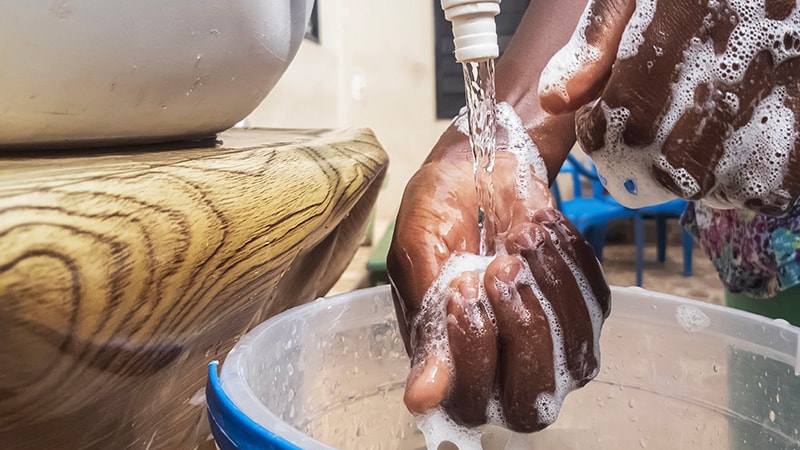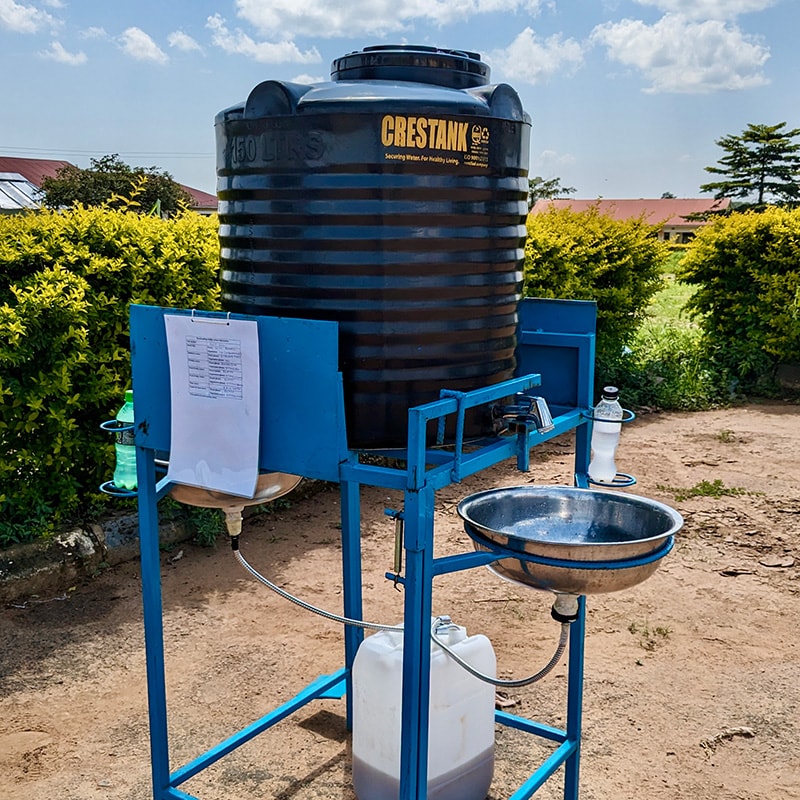At a glance
Washing hands when visiting public gathering places can keep diseases like cholera, flu, and COVID-19 from spreading. CDC’s Waterborne Disease Prevention Branch (WDPB) and global partners are improving access to handwashing facilities in Kenya and Uganda. Locations include markets, schools, border crossings, and other community gathering places.
Challenge

Access to handwashing facilities in community settings where people gather can help stop the spread of cholera, flu, COVID-19, and other illnesses. During the COVID-19 pandemic, WDPB and global partners set up handwashing facilities—typically plastic containers with taps that hold up to 500 liters (132 gallons) of water in community gathering settings with limited access to sinks connected to piped water systems. WDPB’s Global Water, Sanitation, and Hygiene (WASH) team worked with over 70 markets, schools, border crossings, and other community gathering locations in Kenya and Uganda to evaluate how the handwashing facilities are being managed and maintained, identifying areas for improvement.
Many of the handwashing facilities installed during the COVID-19 pandemic had fallen into disrepair within a year or two, while others often lacked soap and water. WDPB’s Global WASH team and partners learned that most of the community gathering locations were not equipped with practical guidance on how to maintain their handwashing facilities.
Approach

WDPB's Global WASH team and partners have developed a manual to help managers of community gathering locations maintain their handwashing facilities. The manual draws on lessons learned from previous work and shares best practices, visual aids, and management tools. It also includes recommendations for:
- setting up handwashing systems
- developing management plans with assigned tasks and budgets for supplies and repairs
- promoting handwashing to visitors
The team is working with Uganda's Ministry of Health to adopt the recommendations across the country. In Kenya, the team conducted a pilot training with the government's Port Health Services on managing handwashing facilities at border crossings. The team plans to expand the training to additional border crossings and other areas, including schools and refugee camps.
Impact
This initiative is helping improve access to sustainably managed handwashing facilities in community gathering locations across East Africa. The management materials provide practical tools to help support the World Health Organization's Hand Hygiene for All Global Initiative. WHO's global initiative aims to ensure lasting hand hygiene infrastructure and behavior.
